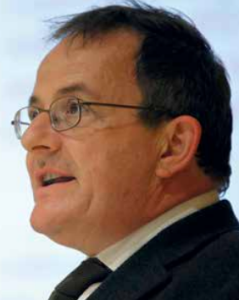国際会議 「サブサハラアフリカにおける稲作振興とマラリア対策」International Conference “Rice Cultivation and Malaria Control in sub-Saharan Africa”
English follows Japanese
国際会議 「サブサハラアフリカにおける稲作振興とマラリア対策」のご案内
我が国は、2008年に開催された第4回アフリカ開発会議(TICAD Ⅳ)で、「サブサハラアフリカにおけるコメ生産量10年間で倍増させる」目標を発表、2018年には目標を達成するという、同地域での農業振興へ高い貢献を行ってきました。
しかし、同地域の生産量は未だ消費量に追いついておらず、水田面積・灌漑水稲作の拡大を通じた、さらなる稲作振興とその増産が求められています。他方、その拡大が水環境変化とそれに伴う生態系の変化をもたらすこと、その結果、マラリアをはじめとする蚊媒介性疾患の発生を助長するリスクが生じる可能性が指摘されています。
日本で唯一マラリアに特化した認定NPO法人マラリア・ノーモア・ジャパンは、国際的なマラリアに関するプラットフォーム「マラリアを終わらせるためのロールバックマラリア(RBM)パートナーシップ」の要請、および国連基金の助成金を受け、ロンドン大学衛生熱帯医学大学院のジョー・ライン博士らの協力の下、アフリカにおける稲作振興がマラリアの発生に与える影響について、調査を行いました。
この度、調査結果および調査に基づく提言を発表する国際会議を開催いたします。ぜひご参加ください。
- 開催日:2022年7月19日(火) 16:00~17:00
- 会場:参議院議員会館 特別会議室
- 主催:認定NPO法人Malaria No More Japan
- 共催:2030年までにマラリアをなくすための議員連盟、RBM Partnership to End Malaria
- 言語:日本語・英語(同時通訳有)
- 参加費:無料
- 参加方法:ハイブリッド形式。ZOOMウェビナーを活用。
- 参加申込は以下より登録くださいhttps://forms.gle/Z3uPSAjvJN3UWZna8
イベントスケジュール(予定)
15:45 開場(ZOOMウェビナー公開)
16:00 開会
司会:石毛 郁治(Malaria No More Japan専務理事)
2030年までにマラリアをなくすための議員連盟よりご挨拶
松本剛明 衆議院議員(2030年までにマラリアをなくすための議員連盟会長、自由民主党国際協力調査会会長)
調査結果報告「サブサハラアフリカにおけるコメとマラリアの関連性(仮)」
ジョー・ライン(ロンドン大学衛生熱帯医学大学院(LSHTM)教授)
カリスタ・チャン(LSHTM)
齋藤和樹(Africa Rice Center)
専門家よりコメント
皆川昇(長崎大学熱帯医学研究所教授)
金子明(大阪公立大学大学院医学研究科特任教授)
独立行政法人国際協力機構よりコメント
井本佐智子(独立行政法人国際協力機構理事 )
日本のゼロマラリアに向けた統合型戦略の提言とマラリア議連への手交
神余隆博(Malaria No More Japan理事長、関西学院理事・関西学院大学教授・同大学国連外交統括センター長)
17:00 終了
調査結果報告者略歴
 ジョー・ラインズ(Jo Lines)
ジョー・ラインズ(Jo Lines)
ロンドン大学衛生・熱帯医学大学院教授(ベクター生物学とマラリアコントロール)
マラリア蚊の制御に関する実用的な研究に従事する。進化遺伝学、医昆虫学を学んだ後、タンザニアで、殺虫剤処理ネットを含む媒介蚊制御介入策の研究方法の開発に携わった。その後、東南アジア、中国、北米での研究に携わり、コンサルタントとして国のマラリア対策プログラムの支援やマラリア対策プロジェクトの設計・評価にも従事した。2008年から2011年まで、世界保健機関(WHO)の世界マラリア計画で、ベクターコントロールユニットのコーディネーターを務め、WHOの政策提言、特に殺虫剤耐性管理のためのグローバルプランの策定を主導した。現在はアフリカのマラリア媒介蚊の薬剤耐性と人為的な要因によるマラリアの増大問題について研究を行っている。
 カリスタ・チャン(Kallista Chan)
カリスタ・チャン(Kallista Chan)
ロンドン大学衛生・熱帯医学大学院 研究助手・博士課程学生
感染症疫学と医昆虫学を専攻し、媒介性疾患とその制御、特に、景観や農業がそのリスクに与える影響の定量化とその対策手法の開発を主要テーマとする。現在、ロンドン大学衛生・熱帯医学大学院の博士課程に在籍し、アフリカライスセンターと国際稲作研究所とともに、マラリア媒介する蚊の発生を抑えるイネ栽培技術の開発に関する研究を行っている。
 齋藤 和樹(さいとう かずき)
齋藤 和樹(さいとう かずき)
アフリカライスセンター 主席研究員
京都大学大学院で北ラオスの焼畑稲作研究を対象としたテーマで農学博士号を2005年に取得。その後、コートジボワールを拠点とするアフリカライスセンターで2006年よりアフリカにおけるイネ生産改善に向けた研究活動に従事している。現在の主な研究テーマは、イネ収量ギャップ・持続性の評価、肥培管理技術、稲作栽培意思決定支援ツールなどである。アジアとサブサハラアフリカで20年以上の研究経験があり、国際農林水産業研究センター(JIRCAS)招聘研究員(2017年~)、東京農工大学非常勤講師(2018年~)を兼任する。これまでに、査読付き雑誌に100以上の科学論文を発表してきた。2015年には若手有望科学者としてルイ・マラシス国際科学賞を受賞。
International Conference
“Rice Cultivation and Malaria Control in sub-Saharan Africa”
Japan, on the occasion of the Fourth Tokyo International Conference on African Development (TICAD IV) in 2008, has set a goal to “double rice production in sub-Saharan Africa in the ten years from 2008 to 2018” and promoted rice cultivation in the region, achieving the doubling goal in 2018 and contributed to the agricultural development in the region.
However, production in the region has yet to catch up with consumption, and there is a need to further promote rice cultivation and increase its production by expanding the area of rice paddies and irrigated rice cultivation. On the other hand, it has been pointed out that this expansion may lead to changes in the water environment and the collateral changes in the ecosystem, and as a result, there is a risk of fostering the outbreak of malaria and other mosquito-borne diseases.
In this regard, Malaria No More Japan, the only malaria-focused non-profit organization in Japan, has been requested by the international malaria platform, the RBM Partnership to End Malaria, and also with the support of a grant from the United Nations Foundation, and in collaboration with Dr. Jo Lines, Professor of London School of Hygiene & Tropical Medicine, and his colleagues have been conducting a study on the impact of rice promotion on malaria incidence in Africa.
We are pleased to announce an international conference to present our findings and recommendations based on our research. We look forward to your participation.
- Date & Time: 16:00 – 17:00 (JST), Tuesday, July 19, 2022
- Venue: Special meeting room in the House of Councilors building
- Organizer: Malaria No More Japan
- Co-organizers: Parliamentary Group to End Malaria by 2030, RBM Partnership to End Malaria
- Language: Japanese/English *Simultaneous interpretation will be available.
- Participation fee: Free
- How to participate: hybrid format, utilizing ZOOM meeting
- For registration, please visit the link below:
https://forms.gle/Z3uPSAjvJN3UWZna8
TIME SCHEDULE (TBD)
MC: Dr. Fumiharu Ishige, Executive Director, Malaria No More Japan
15:45 ZOOM open
16:00 event starts
Welcome speech by the Parliamentary Group to End Malaria by 2030 in Japan
- Takeaki Matsumoto (Member of House of Representatives, Chair, Parliamentary Group to End Malaria by 2030)
“Food security and human health: the link between rice and malaria in sub-Saharan Africa” (tentative)
- Jo Lines, Professor of Malaria Control and Vector Biology, London School of Hygiene & Tropical Medicine (LSHTM)
- Kallista Chan, Research Assistant of Vector Biology and Control, LSHTM
- Kazuki Saito (Africa Rice Center)
Comments
- Noboru Minakawa, Professor of Institute of Tropical Medicine, Nagasaki University
- Akira Kaneko, specially-appointed Professor at Osaka Metropolitan University, Graduate School of Medicine
Comments from JICA
- Sachiko Imoto, Senior Vice President of Japan International Cooperation Agency (JICA)
Announcement of Policy recommendation for the integrated strategy to tackle malaria by Malaria No More Japan, and handover to the Parliamentary Group to End Malaria by 2030 in Japan
Presented by Dr. Takahiro Shinyo, Chairman of Malaria No More Japan, Professor of Kwansei Gakuin University)
17:00 Close
Speakers’ Biographies
 Dr. Jo Lines, Professor of Vector Biology and Malaria Control, the London School of Hygiene & Tropical Medicine.
Dr. Jo Lines, Professor of Vector Biology and Malaria Control, the London School of Hygiene & Tropical Medicine.
I work on practical methods for the control of malaria mosquitoes. After training in evolutionary genetics and then medical entomology, I lived and worked in a small town in Tanzania, working with colleagues to develop methods for the study of vector control interventions, especially insecticide-treated nets, and helping to build a field research station. Over the years, I’ve been involved in collaborative research in Southeast Asia, China and Latin America, and I’ve worked as a consultant in support of national malaria control programmes, and in the design and evaluation of malaria control projects. From 2008 to 2011, I was Coordinator of the Vector Control Unit of the World Health Organisation’s Global Malaria Programme in Geneva, where I initiated and led the development of several still-current set of WHO policy recommendations, especially the Global Plan for Insecticide Resistance Management. Over the years, my research has gradually become more multi-disciplinary and inter-sectoral. My current research addresses two main issues: the insecticide resistance arms race with Africa vectors, and the growing problem of “man-made malaria” in anthropogenic landscapes.
 Kallista Chan, Research assistant & PhD candidate, London School of Hygiene and Tropical Medicine
Kallista Chan, Research assistant & PhD candidate, London School of Hygiene and Tropical Medicine
Profile: With a background in infectious disease epidemiology and medical entomology, I have a special interest in vector-borne diseases and their control. I am particularly interested in the multi-sectoral nature of vector-borne diseases such as the influence of landscape and agriculture on risk and potential control. I am currently a PhD candidate at the London School of Hygiene and Tropical Medicine, where I am exploring methods of growing rice without growing malaria vectors. In collaboration with AfricaRice and International Rice Research Institute, the PhD aims to identify potential agriculture and health co-benefits in improved or novel rice cultivation techniques such as alternate wetting and drying irrigation.
 Dr. Kazuki Saito, Principal scientist, Africa Rice Center
Dr. Kazuki Saito, Principal scientist, Africa Rice Center
Profile: I am an agronomist employed by the Africa Rice Center, based in Côte d’Ivoire. I have >20 years of research experience in Asia (2000-2005 as part of my MSc and PhD studies) and sub-Saharan Africa (2006-present). I am also a research fellow in Japan International Research Center for Agricultural Sciences (JIRCAS) (2017-present), and part-time lecturer for Tokyo University of Agriculture and Technology (2018-present). My works have focused on yield gap assessment, diagnostic surveys, integrated management practices, decision support tool on nutrient management practices, farming systems research, and improvement of yield potential and abiotic/biotic stress resistance in rice. I have authored and co-authored more than 100 scientific papers in peer-reviewed journals. I received my PhD degree in Agriculture from Kyoto University, Japan on ‘Description, constraints and improvement of slash-and-burn upland rice production systems in northern Laos’. I was awarded the Louis Malassis International Scientific Prize for Young Promising Scientists in 2015.